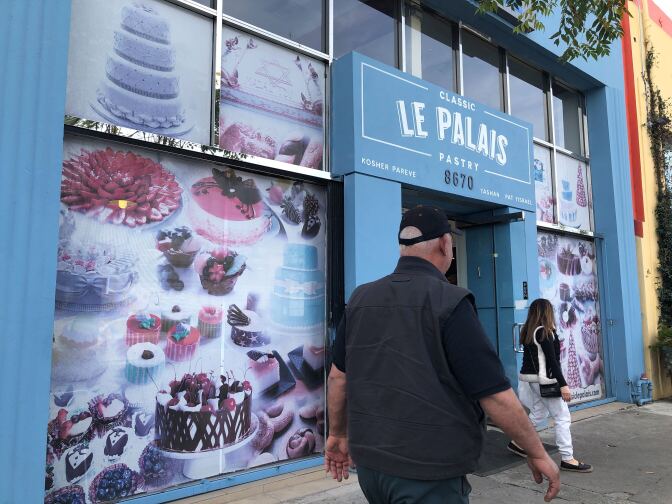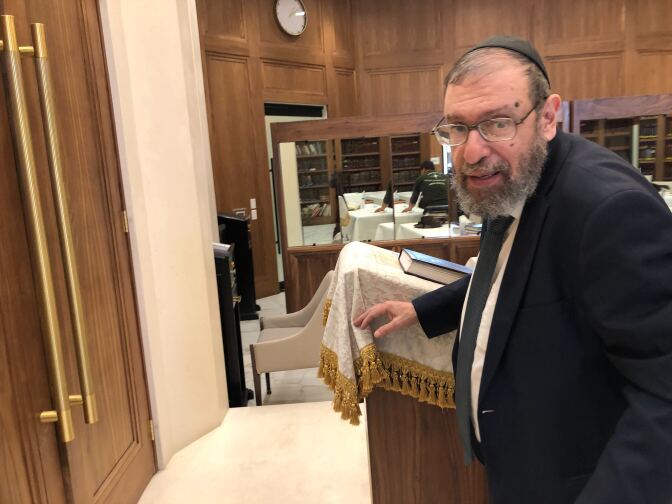You’d have to drive freeway speeds through L.A.’s Pico-Robertson neighborhood to miss that it’s a Jewish area.
Buildings have Hebrew letters that identify the names of synagogues. Bakeries and restaurants are decorated with Stars of David. Men wear skullcaps, long fringed threads from their shirts according to Biblical law, and women wear clothing covering their arms and legs.
The shooting on Wednesday and Thursday of two Jewish men leaving morning prayer services here made some people want to erase what visibly distinguishes them as Jewish.
“I kind of don't want to wear my kippah, it makes me a target,” said Azriel Goldberg, who’s lived in the area for 18 years.
He stood just about a block from where the shootings took place and talked about being fearful after he found out about the incidents and the victims.
About the arrest and charges
About this shooting
A Riverside man who had what authorities described as "a history of antisemitic and threatening conduct" has been arrested in connection with two shootings this week in a predominantly Jewish neighborhood in West Los Angeles.
About the community

This is a community that people here say is beautiful because of its diversity.
“It's not monolithic, there's many beliefs, many thoughts,” said Boruch Blum, who was studying at LINK Kollel synagogue on Pico Boulevard, at midday Friday. “There's Persian Jews, there's Moroccan Jews… all kinds of people, there's all kinds of Jews, I think a lot of Jewish people don't even know that.”
It definitely put a little chill into everybody. We had to look over our shoulders when we were walking.
And to reflect that, there were also a variety of responses to the shooting.
“I was never on edge,” said Moshe Vosoghi as he left a kosher bakery, carrying a cake with one hand and holding his three-year-old daughter’s hand with the other. “I lived in New York for a while, much freakier than here, so I'm pretty calm.”
“Clearly the fact that there are two shootings in two days, obviously indicated there was an antisemitic psycho on the loose,” said Eli Stern, the assistant rabbi at LINK Kollel synagogue. “It definitely put a little chill into everybody. We had to look over our shoulders when we were walking.”
The long shadow of discrimination
Stern said it’s the first time in the 26 years he’s lived in this neighborhood that he’s seen this level of violence, gun violence no less, targeting Jewish people. Stern and others here talked about how being Jewish is knowing that you and your ancestors have been targets of discrimination and hate for centuries, and millennia.
Nevertheless, he’d like the wider region to know that Jewish people are targets, that they are a minority, and that just like other minorities, they are entitled to protection.
The shootings broke more than calm — they broke some people’s sense of security, and are leading them to consider what actions they need to take.
“As horrible as it is, I feel like we should be armed,” Goldberg said. “It would be great if we didn't have to defend ourselves but… we have guards at [synagogues] everywhere.”
Reporting today on the reactions to the shooting of two Jewish people this week in LA’s Pico Robertson neighborhood pic.twitter.com/OiMuPqjEfq
— Adolfo Guzman-Lopez (@AGuzmanLopez) February 17, 2023














